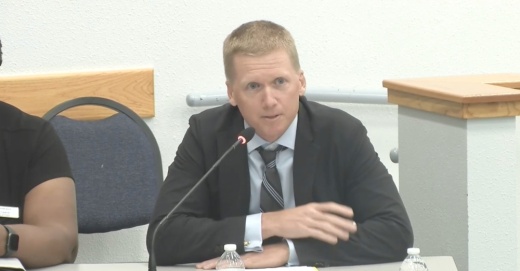RRISD Chief of Teaching and Learning Ryan Smith said there were few changes from the previous year handed down by the Texas Education Agency. Some of the updates are tied to HB 4545, a bill passed in 2021 that established learning acceleration requirements for students who do not pass the State of Texas Assessment of Academic Readiness and Skills. Under HB 4545, retesting opportunities for grades five and eight have been eliminated, along with separate writing assessments previously administered in grades four and seven, according to the district. Smith said writing elements have been incorporated into reading exams across the board.
"I really wanted to highlight...that [with] the scaling and the targets and everything that we're working with in 2022, nothing has been adjusted to really take the pandemic into account in any way," Smith said.
According to the TEA, “scaling” refers to the methodology behind assigning “A” through “F” letter grades for performance reporting. In 2023, scaling and student target groups will be "reset," Smith said, adding that takes into account the impact of the COVID-19 pandemic on the state's education system.
"We do anticipate that there could be significant swings in how our scores are scaled after this year," Smith said.
For the first time, August 2022 accountability ratings will also include outcomes for both in-person and virtual learners. This fall, the Texas Education Agency will issue virtual program ratings that will evaluate the outcomes of students who were instructed virtually at least 50% of the time. Unlike STAAR testing, the TEA evaluations will not result in interventions or sanctions, according to the district.
"Our (virtual) students are typically outperforming students that were on campus in the fall," Smith said. "I don't know if we necessarily correlate one to the other, because the students who performed high were performing high prior to our virtual learning program [and] are performing high afterwards."





